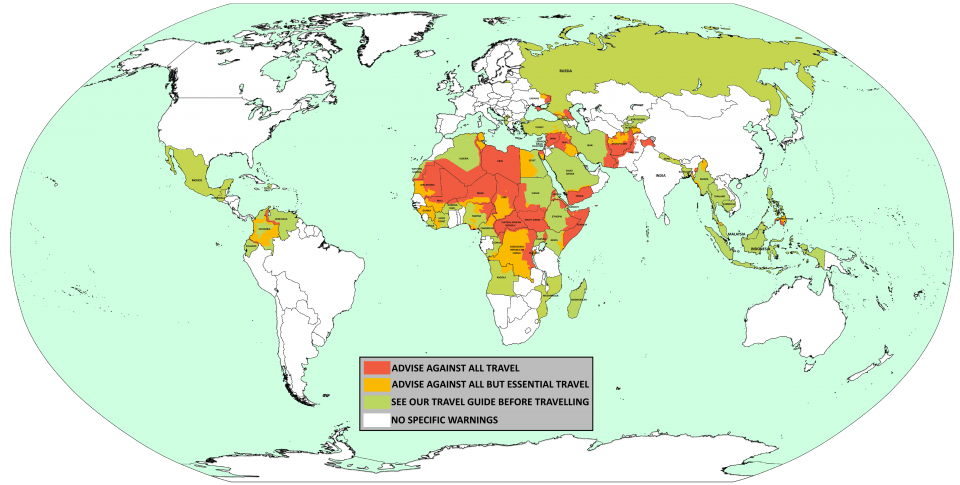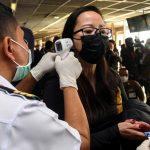The Foreign and Commonwealth Office (FCO) advise against all but essential travel to areas within the provinces on the Thailand-Malaysia border, including:
- Pattani
- Yala
- Narathiwat
Southern Songkhla province. This does not include areas north of and including the A43 road between Hat Yai and Sakom, and areas north-west of and including the train line which runs between Hat Yai and Pedang Besar.
Consular support is not available in the parts of Thailand where the FCO advise against all but essential travel.
There is an ongoing outbreak of coronavirus (COVID-19) in China, but cases have been confirmed in other countries, including Thailand. The Thai authorities have introduced a number of measures to limit the spread of the virus. At present there are measures in place for people travelling to Thailand from China (including Hong Kong and Macau), Italy, Iran, South Korea, and also for Denmark, France, Germany, Japan, the Netherlands, Norway, Singapore, Spain, Sweden, Switzerland, Taiwan, the United Kingdom and the United States of America. See Health
Due to the ongoing outbreak, popular tourist events across Thailand including full moon parties and Songkran celebrations may be cancelled or postponed by organisers. If you are planning to go to an event you should check with organisers before you travel.
British nationals make over one million visits to Thailand every year. Most visits are trouble-free, but a small number of British people do encounter problems in Thailand. See Crime
Thailand is experiencing a drought that has led to some sea water entering the fresh water supply and tap water. This issue may continue for several months. Thailand’s Metropolitan Waterworks Authority advise that there is no risk to public health from drinking tap water but salty water can affect people in higher risk groups, such as those with kidney disease. If you are concerned about the risks to your personal health, you should drink bottled water and/or get medical advice.
Avoid any protests, political gatherings, demonstrations or marches, and be wary of making political statements in public. People have faced criminal charges for participating in these activities. Others, including British people, have faced charges for sharing articles online that could be seen as portraying Thailand negatively or making accusations about individuals. Lèse-majesté (criticism of the monarchy in any form) is a crime which can be broadly interpreted, and carries a long jail sentence. See Political situation
Terrorists are very likely to try to carry out attacks in Thailand. On 2 August 2019, a number of small explosions occurred in Bangkok. On 10 March 2019 a number of small explosions occurred in Satun City and in Patthalung Province in the south of Thailand. The authorities have on a number of occasions warned of the possibility of attacks to coincide with symbolic dates or holidays. You should take care, particularly in public places, follow the advice of local authorities and monitor local media reports. See Terrorism
Urban areas across Thailand, especially in Bangkok and Chiang Mai, can experience poor air quality and high PM 2.5 counts, occasionally entering the unhealthy and hazardous levels. This may aggravate bronchial, sinus or asthma conditions. Children, the elderly and those with pre-existing medical conditions may be especially affected. You can check air quality levels for many cities in real time on the World Air Quality Index website. See Health
In severe weather you should follow the advice of local authorities, monitor weather forecasts via the Thai Meteorological Department. If the Mekong River is flooding, check the Mekong River Commission website.
If you’re visiting Thailand, make sure you research local laws and customs before you travel. Laws and penalties can be different from the UK. Conviction for possession, distribution or manufacture of drugs can lead to the death penalty. See Local laws and customs
There are a high number of road traffic accidents in Thailand especially involving motorcycles. If you’re planning to drive a car or ride a motorcycle, under Thai law you must have appropriate insurance and the correct licence for the category of vehicle you’re using. Not having a valid licence in Thailand may invalidate your travel insurance. Helmets must be worn on motorcycles. See Road travel
Take out comprehensive travel and medical insurance before you travel. Make sure your travel insurance covers you for any activities you’ll be doing. Only use fully licensed and insured operators, and check the company is using up-to-date equipment before taking part. See Adventurous activities and swimming
UK health authorities have classified Thailand as having a risk of Zika virus transmission. For information and advice about the risks associated with Zika virus, visit the National Travel Health Network and Centre website.
The Tourist Authority of Thailand’s website and call centre (1672 – press ‘9’ for English) are able to provide some general advice to tourists in English.
If you need to contact local emergency services, call 1155 (tourist police) or 1669 (emergency medical services).
If you need emergency help from the UK government, contact the nearest British embassy, consulate or high commission.
If you’re living in Thailand or planning to stay for a longer period, check the Living in Thailand guide in addition to this travel advice.
The Overseas Business Risk service offers information and advice for British companies operating overseas on how to manage political, economic, and business security-related risks.




